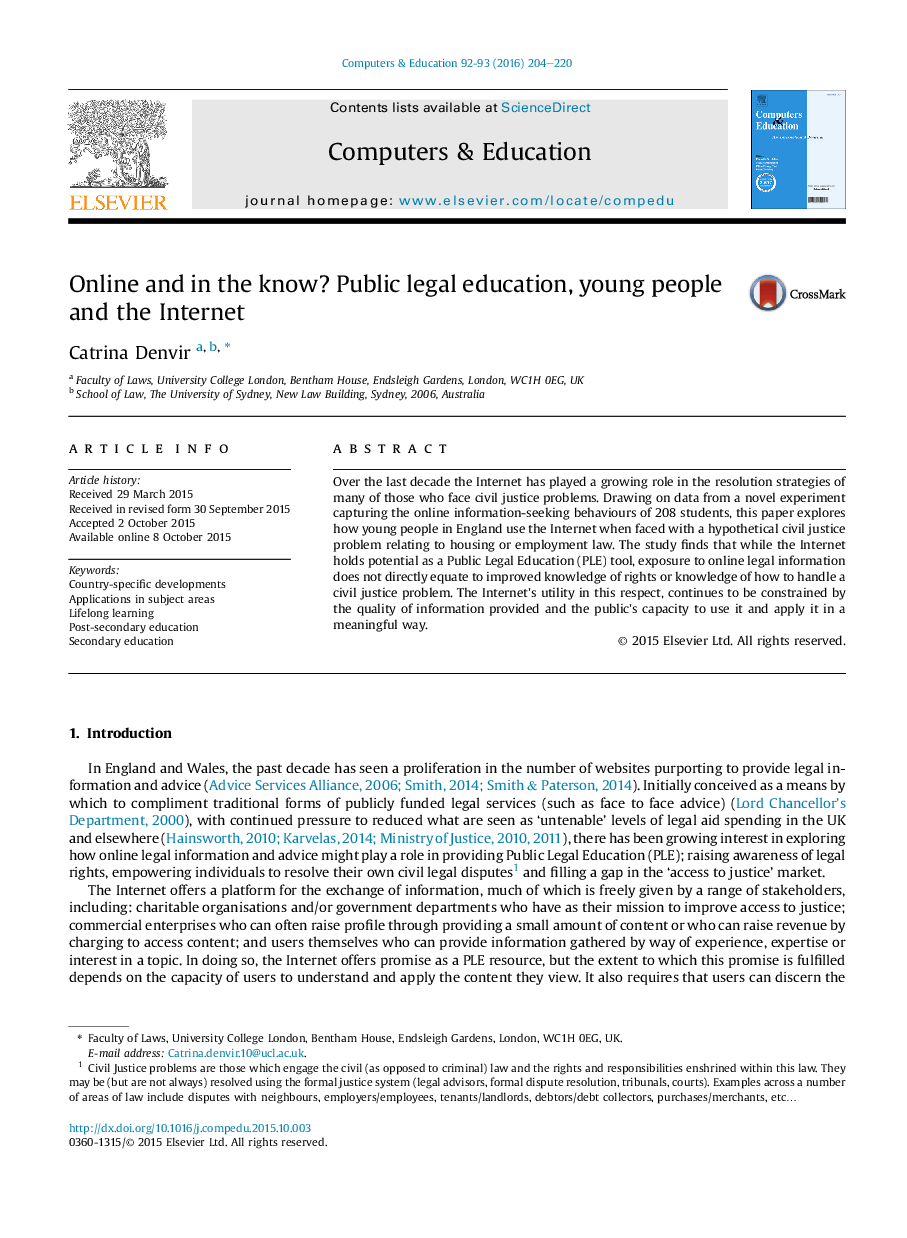| Article ID | Journal | Published Year | Pages | File Type |
|---|---|---|---|---|
| 348227 | Computers & Education | 2016 | 17 Pages |
•This study explores how young people use the Internet to obtain legal information.•Virtual desktops track web search behaviour.•Internet use does not always directly equate to increased knowledge.•Directing individuals to a specific site provides advantages.•Action-orientated information remains difficult to acquire.
Over the last decade the Internet has played a growing role in the resolution strategies of many of those who face civil justice problems. Drawing on data from a novel experiment capturing the online information-seeking behaviours of 208 students, this paper explores how young people in England use the Internet when faced with a hypothetical civil justice problem relating to housing or employment law. The study finds that while the Internet holds potential as a Public Legal Education (PLE) tool, exposure to online legal information does not directly equate to improved knowledge of rights or knowledge of how to handle a civil justice problem. The Internet's utility in this respect, continues to be constrained by the quality of information provided and the public's capacity to use it and apply it in a meaningful way.
